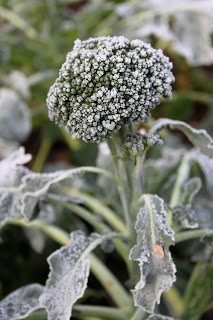The heavy rain and gusty winds of the last few days have knocked many of the leaves off our trees and onto our lawns. Before you rake, bag and deposit your leaves at the bottom of your driveway for pick up, consider the many ways that you can use your leaves to enrich your soil and feed your plants.
Leaves are truly nature’s fertilizer. Plus, the worms go crazy in leaf-enriched soil and I’ve found that adding them to your garden is one of the best ways to boost your worm population. Because of this, I have become a leaf collector. This time of the year, I find it difficult to pass by the bags of leaves that have been placed beside the road for pick up and occasionally find myself ‘adopting’ some of these abandoned bags, bringing them home to enrich my own gardens. I know I’m not the only leaf-thief out there (hello Donna!) and as much as I enjoy collecting a bounty of leaves, I would also love to see more homeowners take advantage of this inexpensive soil amendment in their own gardens.

Of course, if they’re such a great natural soil enhancer, why not just leave them on the lawn to break down? Why bother raking them up? The reason is simple: whole leaves left on the lawn will form a barrier above the grass that if thick enough, will smother your lawn. Before adding leaves to a garden or compost bin, they should be shredded into small pieces with a lawn mower, leaf blower/vacuum or leaf shredder.
Shredding increases the surface area of the leaves, allowing them to break down quicker. It also prevents them from clumping together into unworkable layers. And now that you’ve got plenty of shredded leaves, here are five easy ways to use them:
1) The first and perhaps most important thing to do with your fall leaves is to rake them into a very big pile, take a short run and jump into the leaves with as much gusto as you can muster. Invite your kids, neighbours and anyone else you can think of to join you. Once you’ve gotten that out of your system, re-rake the leaves into a big pile and shred them into small pieces – I use my lawn mower.
2) Take some of those shredded leaves and spread them over the bare soil in the vegetable garden. This will help prevent winter soil erosion and come spring, the decomposing leaves can be dug into the garden to provide valuable nutrients. The leaves may also be used as a mulch in garden pathways to suppress weeds and keep walkways tidy.
3) In late autumn, I mow the lawn gathering up the mulched leaves and organic grass clippings as I go. Once the mower bag is filled with this lovely mixture, it’s emptied into black garbage bags. I then toss in a shovelful of soil or compost and a sprinkle of water. A few holes are poked into the bags with a screwdriver to allow good air circulation. The bags are placed at the back of my cold frames where they will start to turn into nutrient-rich leaf compost. As a side benefit, the leaf bags will provide added insulation to my winter cold frames. Come spring, I open a bag whenever I need some rich organic leaf compost. If you’ve already raked and shredded your leaves, you can still gather them into garbage bags, add some soil or finished compost and a splash of water. Poke holes and place aside for the winter.
4) Put a few bags of shredded leaves aside to be used as an insulating winter mulch around perennials and roses. After the garden has been cleaned up for the year, apply a thick layer of shredded leaves over the soil surface. If you have any compost, put a bit on top of the leaves to help them break down and come spring, you won’t need to remove them. They’ll just continue to decompose and add organic matter to the garden.
5) Use any surplus shredded leaves to start a new compost pile. Form a one-metre square pile of leaves, enclosing it with inexpensive chicken wire and a few wooden stakes for support. Toss in a few shovelfuls of soil or finished compost to start the pile ‘cooking’ and during the winter add your cut up kitchen scraps. Turn occasionally to allow oxygen to reach the centre of the pile and use the finished product next summer to enrich your gardens.














